Huntington Beach and D.A. sue 5 locations accused of operating illegal sober-living homes
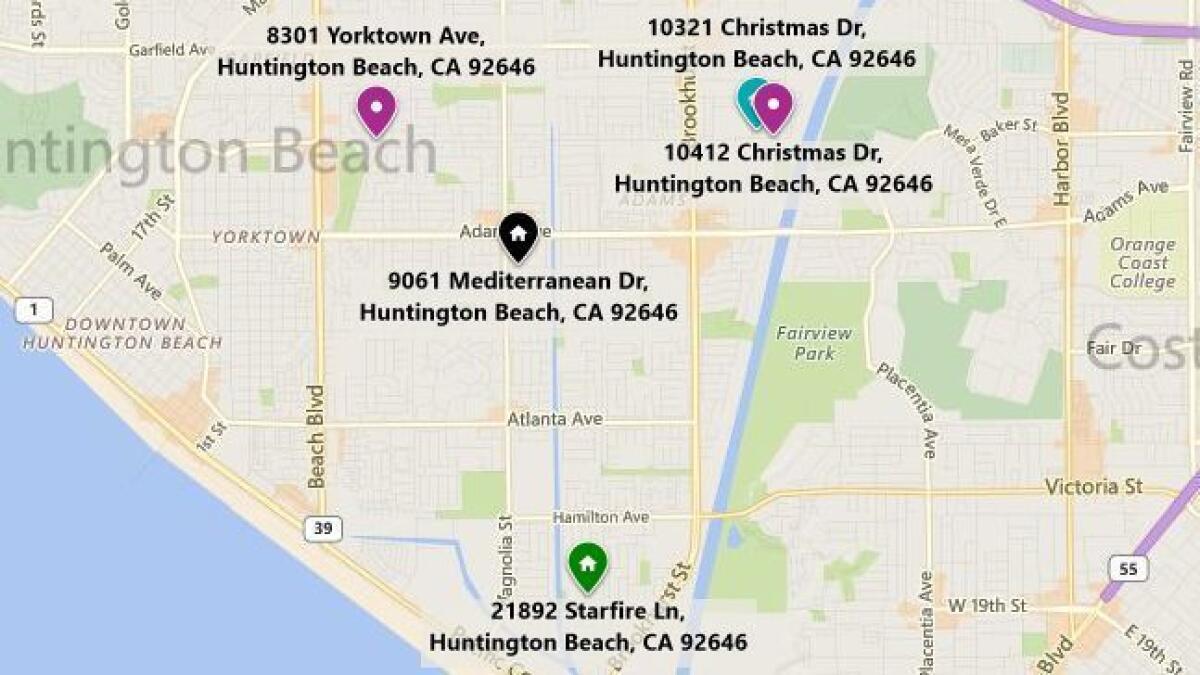
- Share via
The city of Huntington Beach and the Orange County district attorney’s office have taken legal action against what they believe are five illegal in-home businesses in Huntington, marking the first in a planned series of lawsuits.
City Attorney Michael Gates and District Attorney Tony Rackauckas are asking an Orange County Superior Court judge to grant an injunction against the five locations and require them to surrender any ill-gotten gains. They also seek civil penalties of $2,500 for each violation on the properties and each day a violation existed.
The lawsuits, filed Oct. 12, contend the facilities are a public nuisance, operate without proper licensing — violating California’s civil code and Huntington’s municipal code — and constitute unfair competition for legal businesses.
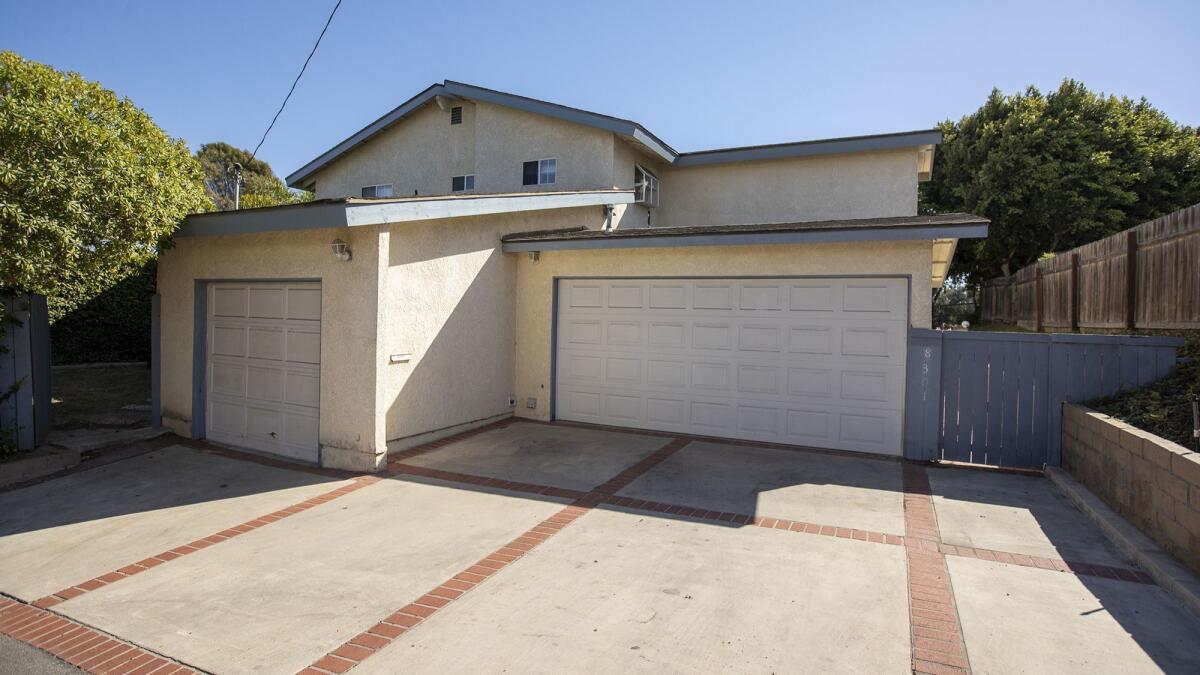
The operations and property owners listed in the lawsuits — StepHouse Recovery Inc., Nevaeh Re 1, Coastline Recovery, David and Andrea Lacy and Anthony Roxstrom — have locations throughout Huntington Beach and are alleged to be operating as residential alcohol or drug rehabilitation facilities, also known as sober-living homes.
Sober-living homes typically house recovering alcoholics and drug addicts who are considered disabled under state and federal laws and must be provided with certain accommodations for housing. The facilities require licenses from the state and a separate permit from Huntington Beach if operating in that city.
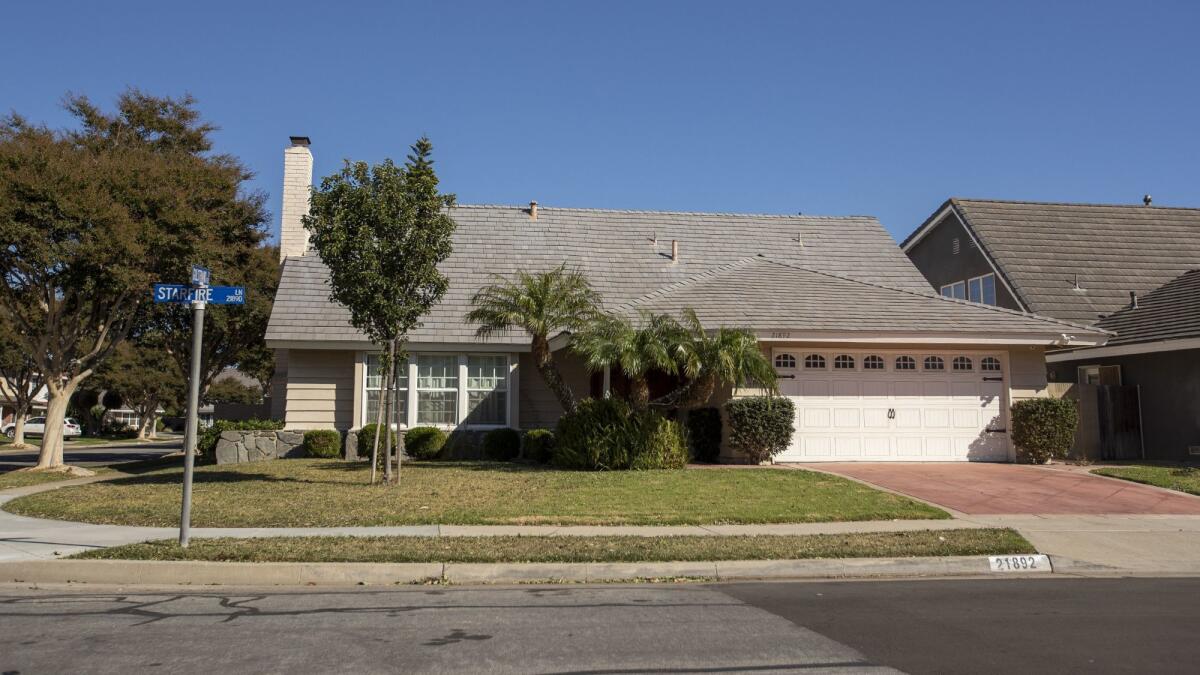
A license is required from the state Department of Alcohol and Drug Programs for treatment facilities that offer non-medical services such as detox, group and personal therapy sessions, educational workshops on addiction-related issues and treatment planning, according to Dual Diagnosis.org.
Facilities such as group homes may require licensing from the state Department of Social Services.
Last week’s legal filings are part of a new partnership between Gates and Rackuckas to crack down on illegal in-home businesses after receiving the green light from the City Council in September. A broader proposal will be given to the council Nov. 5.
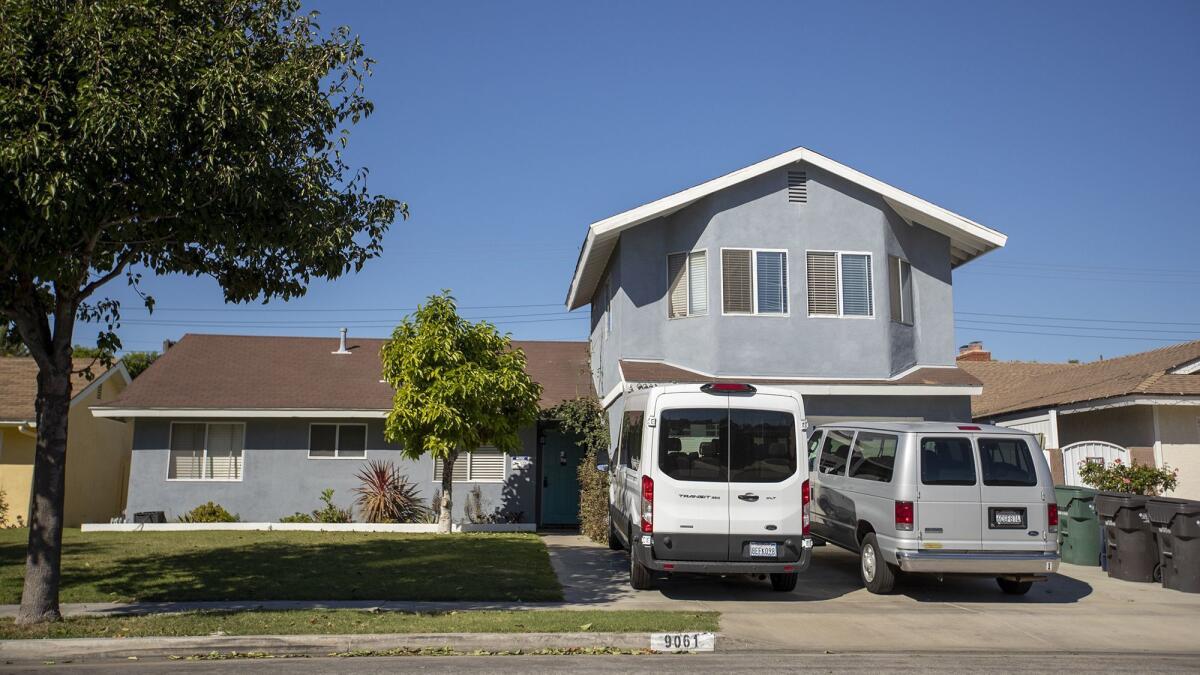
Coastline Recovery, at 8301 Yorktown Ave., did not return messages seeking comment. Roxstrom, whose property is at 21892 Starfire Lane, and Nevaeh, at 10321 Christmas Drive, could not be reached.
StepHouse Recovery, which is headquartered in Fountain Valley, offers a “full spectrum” of detox, rehab, care and other services for recovering addicts, according to its website. It offers sober-living residences throughout Orange County, including a Huntington location at 10412 Christmas Drive.
George Vilagut, who owns StepHouse, said in an interview that the services are offered only at the headquarters, which he said has a permit from Fountain Valley.
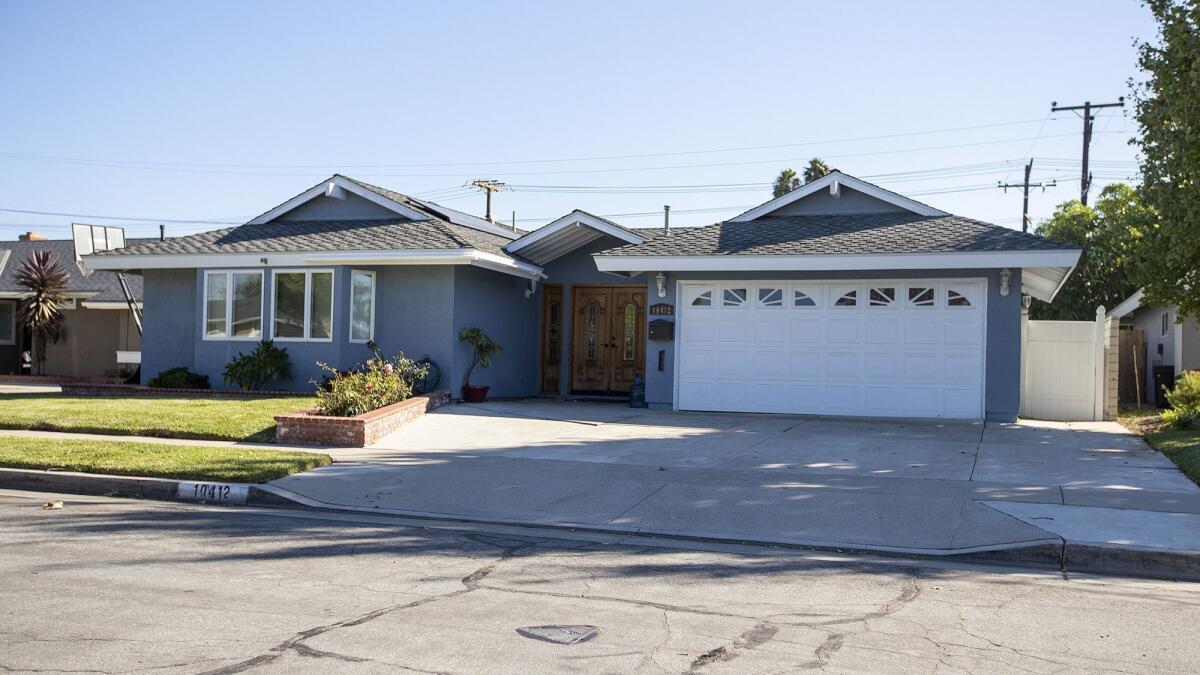
The Huntington location, he said, offers independent living for people in need. Gates’ classification of it as a business is “up for debate,” Vilagut said.
There isn’t anything illegal about renting or leasing out a space as long “as there aren’t any services; we’re not a board and care,” Vilagut said.
He said StepHouse isn’t in the category of short-term rentals — which are illegal in Huntington Beach — because its program is for a year or longer, not 30 days or less.
David Lacy, who owns a property at 9061 Mediterranean Drive, said in an interview that he was under the impression the facility was licensed when he leased it to Rise Above Recovery in 2016.
“I haven’t received any complaints about anything,” Lacy said. “This is the first thing I’ve heard about a nuisance. All I know are the people running it. I didn’t know it was illegal. Since I found out something’s wrong, we’re gonna try to rectify it.”
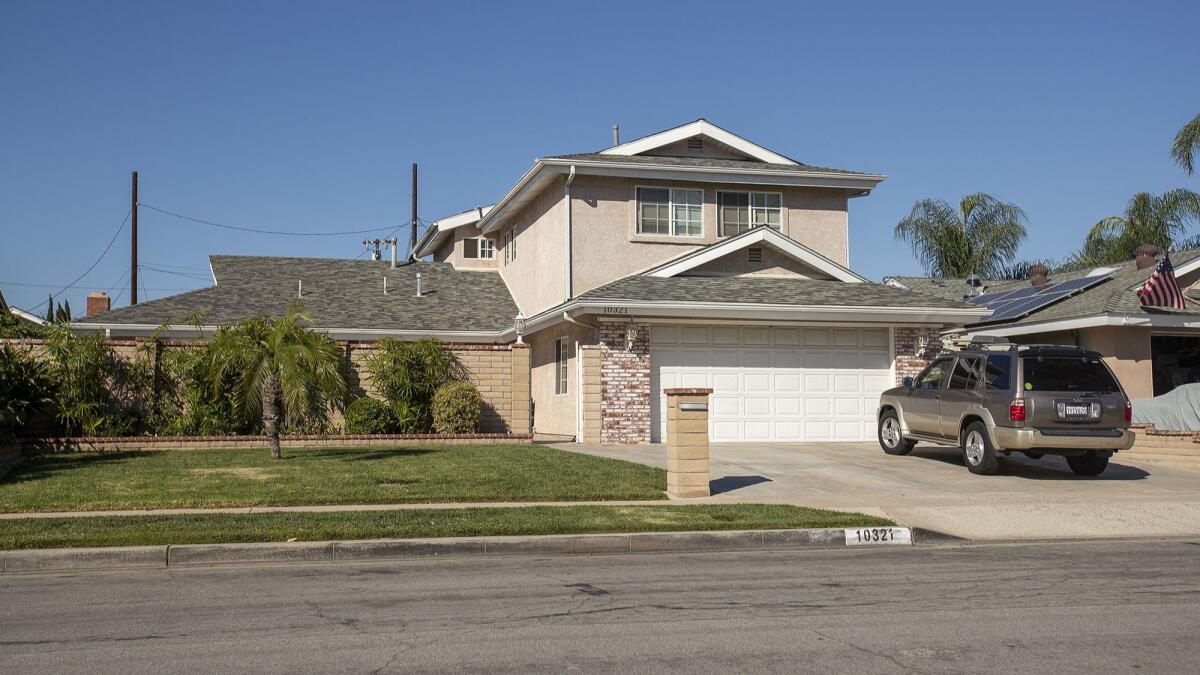
After learning about the lawsuit, Lacy said the tenant would be gone by the end of this month.
Rise Above Recovery did not return a call seeking comment.
Residents in some areas have complained that sober-living homes have negative effects on neighborhood noise, parking and safety, but Gates said the issue isn’t where the facilities are but whether they’re licensed.
Huntington Beach has about 100 sober-living homes, of which 50 to 75 are illegal, Gates said.
Gates said illegal businesses are selected for legal action based on the highest number of neighborhood complaints. City code enforcement officers research the businesses in question while Gates works with the district attorney’s office to determine which to sue.
On Tuesday, the Orange County Board of Supervisors voted 3-0 to give initial approval to Rackauckas’ proposed ordinance to require private alcohol and drug abuse programs in the county’s unincorporated areas to register each year with the Orange County Health Care Agency.
Supervisors Shawn Nelson and Todd Spitzer, who is running against Rackauckas for the district attorney seat in the November election, abstained.
The ordinance would require programs to identify their locations, owners and affiliated programs and facilities. By creating a roster, consumers and the public could make informed decisions, protect patients from conflicts related to their care and help prevent billing fraud, according to the proposal.
Spitzer said in a statement that the ordinance doesn’t go far enough because it duplicates a 2005 state law requiring facilities to register. He also objected that cities weren’t included and a cost analysis wasn’t provided for taxpayers.
But the ordinance is only a starting point, according to Susan Kang Schroeder, chief of staff for the district attorney’s office.
If programs register, she said, it could help weed out insurance fraud because the registration would list all of a program’s affiliations.
The goal is to encourage cities to pass their own ordinances so they can “pick up where the county cannot” instead of going through a criminal process, she added.
The Board of Supervisors will consider final adoption of the ordinance Oct. 30.
Twitter: @vegapriscella
All the latest on Orange County from Orange County.
Get our free TimesOC newsletter.
You may occasionally receive promotional content from the Daily Pilot.




